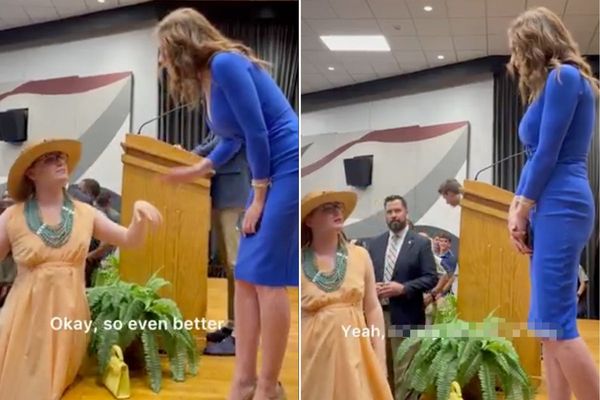PHILADELPHIA — For survivors of the South Street shooting, the night comes back in flashes: A night with friends. Men fighting. Gunfire. Running. Pain.
There’s the 17-year-old shot in the knee, who missed the final week of her junior year of high school, her family worried about how they will afford medical expenses without health insurance.
There’s the 20-year-old server nursing a broken shoulder blade, his arm partially numb and his mind distraught, the chaotic scene on repeat.
And the 69-year-old guitarist with the graze wound to the calf, who has returned to performing open mic nights, using music to heal and bring people together.
Three people died during the melee, including two bystanders. But those who survived now face potentially months of recovery and trauma, the scenes of that night — running for their lives, then a bullet piercing their skin — replaying in their heads.
In Philadelphia, this experience is not unusual. The 11 people wounded in the June 4 shooting, ages 17 to 69, are among more than 1,000 people who have been shot in the city so far this year, about 800 of whom survived.
With 14 people hit by gunfire, the South Street shooting left more people wounded or killed than any other episode of gun violence in Philadelphia since at least 2015. Most survivors have been released from the hospital, but now they wonder how they’re supposed to move forward.
“Without health insurance what can I do?” said Zainab Sesay, whose 17-year-old daughter, Umahiya Yansaneh, was shot in the knee. “I am all alone.”
The family lives in Yeadon. On Tuesday, Umahiya laid on the couch under a fleece blanket, her left leg swollen and knee wrapped in gauze. She struggles to sleep through the pain and is unable to walk, her mom helping her with everything from getting to the bathroom to going to bed.
Sesay had to call out from a new job to care for her, and in two weeks, they’ll return to the hospital to see if she needs surgery.
Sesay, who two decades ago immigrated to Philadelphia from Sierra Leone, recently lost her job as a home health aide, she said, and although she just got a new one, health insurance hasn’t kicked in.
She paced around her living room, frustrated with the fact that it was not her daughter’s fault she’d been shot, but now they must bear the costs.
“Now look at her here,” Sesay said, close to tears.
Umahiya, a student at Penn Wood High School’s Green Avenue campus, was with a few friends Saturday. They were near Third and South streets when three men started fighting, she said, and within minutes, gunfire erupted.
She tried to run, she said, but bullets flew from both directions. She fell to the ground after her knee was struck. Her best friend, also 17, was shot in the shoulder. Another friend held their hands as they screamed for help and tried to stop the bleeding until a police officer arrived with a tourniquet, she said.
She and her best friend will turn 18 in October, their birthdays just a week apart, she said. Now they also share scars.
Many of the people injured were young; six were teens. Another 17-year-old struck in the shoulder is home recovering, his mother said, trying to prepare for his high school graduation next week.
Justin Jacobs, 20, also was shot in the shoulder. He’d been in the city celebrating Pride Month with his brother. He said he can’t remember where he was when the gunfire rang out, but his older brother found him in an alley, putting pressure on his own shoulder and trying to stop the bleeding.
“I was wearing this white jacket and I just saw all this blood,” said Jacobs, who lives in Chester. “I thought I was going to die.”
He also struggles to sleep from the pain, and his arm periodically goes numb. He doesn’t know yet when he can return to work, but he should make a full recovery in about two months, his doctor told him. The mental anguish, though, will take much longer to heal, he said. His brother, James Taylor, has been caring for him.
“That’s what a lot of people forget,” said Taylor, 21. “You have to help them physically but they also have to recover mentally and you can only help as much as you can.”
Those who were on South Street but weren’t physically injured are also still reeling.
The gunfire triggered Ricky James’ post-traumatic stress. He was so scared to return home Saturday night, convinced the shooters knew he’d witnessed the crimes, that when he left the scene, he parked on the waterfront and slept in his car.
As James, 41, ran through the street, ducking bullets and watching them rip through the signs in front of him, he wondered if God would spare him a second time. He’d been shot nine times in 2001, and survived.
“The only thing you can do,” he said, “is just pray and run fast as you can.”







